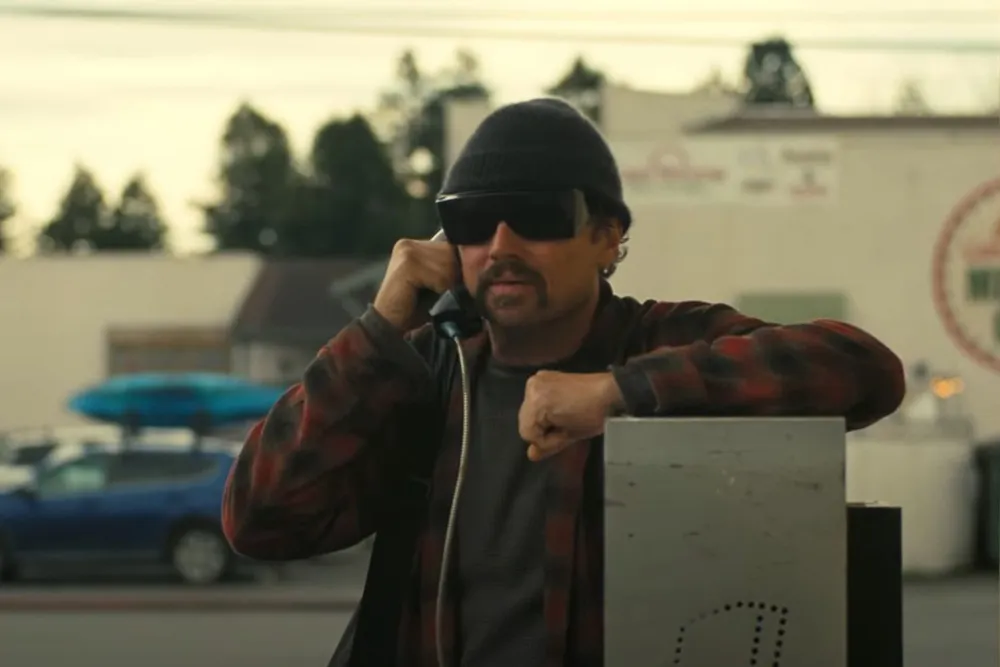Are We Good?
Posted on October 2, 2025 at 3:00 pm
B| Lowest Recommended Age: | High School |
| MPAA Rating: | Not rated |
| Profanity: | Very strong language |
| Alcohol/ Drugs: | References to smoking, and alcohol and drug abuse |
| Violence/ Scariness: | Sad offscreen death, dementia of a parent |
| Diversity Issues: | None |
| Date Released to Theaters: | October 3, 2025 |
Marc Maron is not going to live happily ever after. As we saw recently in the documentary “Anxiety Club,” about the connection between stand-up comedy and anxiety, Maron would not feel like himself if he was happy. He is not quite sure why other people are happy, or want to be. Not being happy has worked out well for him. In its own way, that may be his kind of happiness. What he says is, “I’m clearly dealing with grief and sadness by overcompensating with anger and funny.” And that gives him some sense of satisfaction.

“Are We Good?” is a documentary about Maron as he is in a transitional moment. He is still mourning the loss of the person he loved most, the one who made him feel the most seen and safe. That was writer/director Lynn Shelton, and the archival footage of them together is heart-wrenchingly moving, her radiant pleasure in his presence, and a glimpse of him as, yes, happy, somewhere under the defaults of the perpetual dissatisfactions that underly observational humor. If you have not seen Shelton’s “Sword of Trust” movie seek it out. The storyline gets loopy, but Maron is superb and so, in a brief appearance as Maron’s character’s ex, is Shelton.
Maron tells us he always wanted to do comedy, and we see clips from him in the early years. with long hair, a period where he tells us he was smoking, drinking, and doing drugs. David Cross says he was one of the few who liked Maron in those days.
He “didn’t draw” back then, meaning that he could get on TV talk shows but it did not translate to success in clubs. And so, with no particular goal in mind, he set up a recording “studio” in his garage and began the podcast that if he had any hopes of making commercially successful he would probably not have called WTF.
His timing may have been accidental, but it was perfect. And the kind of close observation that underlay his comedy made him an attentive, perceptive, insightful, and empathetic interviewer. Everyone anyone might want to hear came to his garage, comedians like Robin Williams, writers and directors and producers like Lorne Michaels, Quentin Tarrantino, Mel Brooks, and Mike Judge, musicians and singers like Keith Richards, Bruce Springsteen, and Mavis Staples, actors like Brad Pitt and Leonardo DiCaprio, and national figures like Barack Obama. And, of course, Lynn Shelton, before they were a couple, and you can feel the spark between them as they discover it in each other.
In the documentary, Maron appears before an audience with a pad of paper on his lap. They and we can see him creating on the spot, not just jokes, not just his set, but as he admits, even his persona. He is still grieving the loss of Lynn Shelton, and he is also, in the movie’s most touching scenes, dealing with his father’s dementia. He is also coping with the end of WTF. He has spent more time as an actor (recently in the AppleTV+ series “Stick”), though says he is always inclined to turn down offers.
The film will be of most interest to Maron fans, though even fans may prefer his comedy specials and acting appearances. But seeing someone whose inclination is to maintain distance between his thoughts and feelings grapple with loss shows us what even comedy cannot.
Parents should know that this film includes very strong language and references to drinking, smoking, drug use, a parent with dementia, and a sad death.
Family discussion: How can comedy help to process grief? How does what Marc Maron observes around him show up in his act?
If you like this, try: “Anxiety Club,” “Stick,” “WTF,” and Maron’s comedy specials







